Windfall
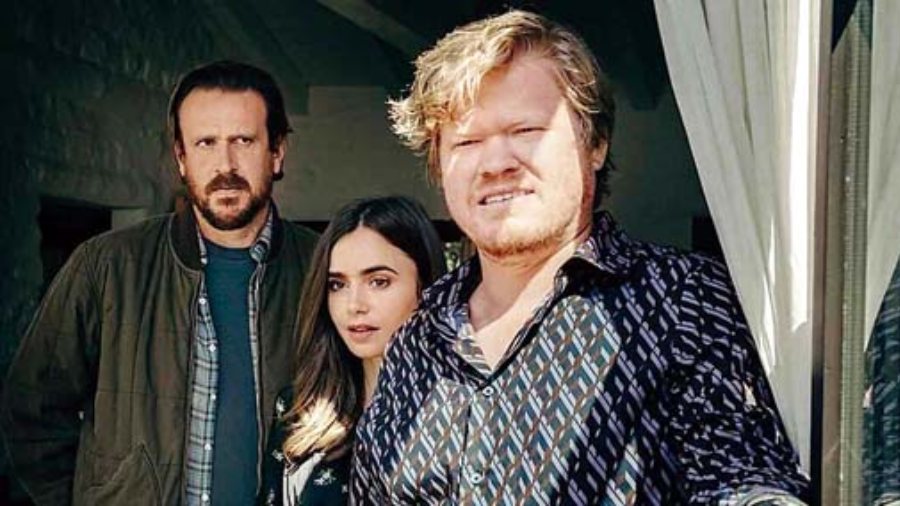
(L-R) Jason Segel, Lily Collins and Jesse Plemons in Windfall
The home invasion template gets a twist of sorts in this talky thriller. Hitchcockian in style and feel — starting right from an art deco-styled opening-credits sequence — Windfall is a sparsely-shot thriller, produced during peak pandemic, which examines the psychological interplay between a well-heeled couple, identified just as ‘Husband’ and ‘Wife’ (played by Jesse Plemons and Lily Collins) who land up at their fancy resort home in Ojai, California, only to find a criminal drifter (Jason Segel) doing much more than poking around the place. What follows is 90 minutes of a stripped-down thriller, which builds on the stifling claustrophobia bit by bit, revealing the dark side of its protagonists, takes a long and hard look at privilege and rips off the veil of toxic masculinity.
Segel is credited as a co-writer here and the film, despite its slow-burn feel, manages to build a chaotic, panicky energy through his character, who also remains unnamed. The writing is such that all the three characters deliberately look like they are improvising through the proceedings, but the flipside of that is that Windfall often veers into disjointed, absurd territory. Helping in creating an unsettling tone is the dissonant orchestral score by Danny Bensi and Saunder Jurriaans (who are best known for their work on the TV series Ozark).
Windfall has its ample share of flaws, but its crisp runtime, chamber-piece setting and focus on just three characters helps in keeping the experience short and smart, if not completely satisfying. Segel and Collins are well cast against type, but Plemons, as an out-and-out douchebag, is the real scene stealer.
Available on: Netflix
Badhaai Do
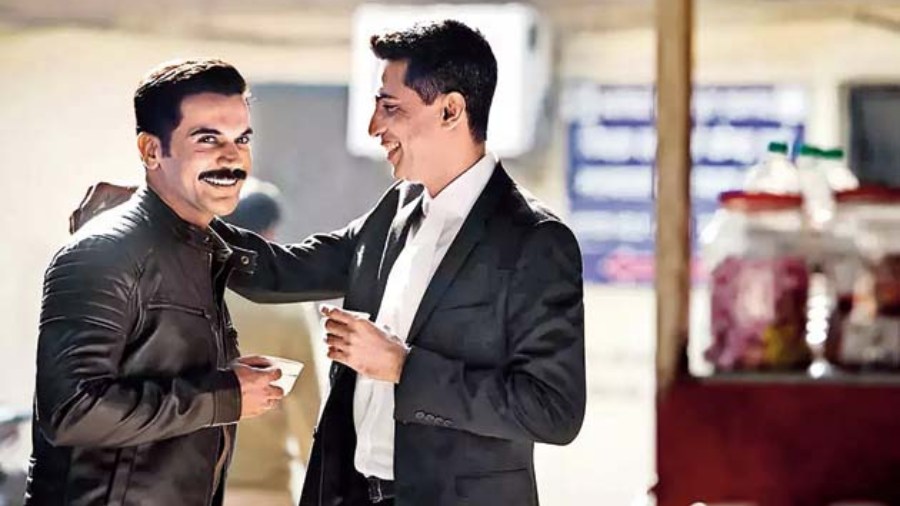
Rajkummar Rao (L) and Gulshan Devaiah in Badhaai Do
Released silently in theatres a month ago but being lauded unanimously now (courtesy, its streaming release), Badhaai Do is both an entertaining and relevant watch, which slips in a social message without hammering it in. Built on the intriguing premise of ‘lavender marriage’ — Google describes it as ‘a male-female mixed-orientation marriage, undertaken as a marriage of convenience to conceal the socially stigmatised sexual orientation of one or both partners’ — Badhaai Do, a spiritual sequel to the sleeper hit Badhaai Ho that sought to destigmatise pregnancy at an older age, is predictably set in small-town India, but works around a bunch of cliched tropes to deliver a heartwarming story that is delightful in its comic moments and equally impactful when it comes to its dramatic scenes.
Sensitively directed by Harshavardhan Kulkarni and felicitiously written by the team of Suman Adhikary and Akshat Ghildial, Badhaai Do’s strength lies in the fact that it doesn’t try hard to be woke. The travails of the LGBTQ+ community are presented without frills, as we get a peek into the lives of Shardul (Rajkummar Rao) and Sumi (Bhumi Pednekar) who enter into a marriage of convenience so that they can lead less stifling lives, and for the first time ever, just be the people that they are.
Badhaai Do is overlong and could have done with a sharper edit, but the performances help to iron out its creases, especially Rajkummar, who ably brings out the complexity of a gay man caught in a profession which demands him to project a macho image. And it’s Gulshan Devaiah, in a six-minute cameo, who steals the show.
Available on: Netflix
Pieces of Her
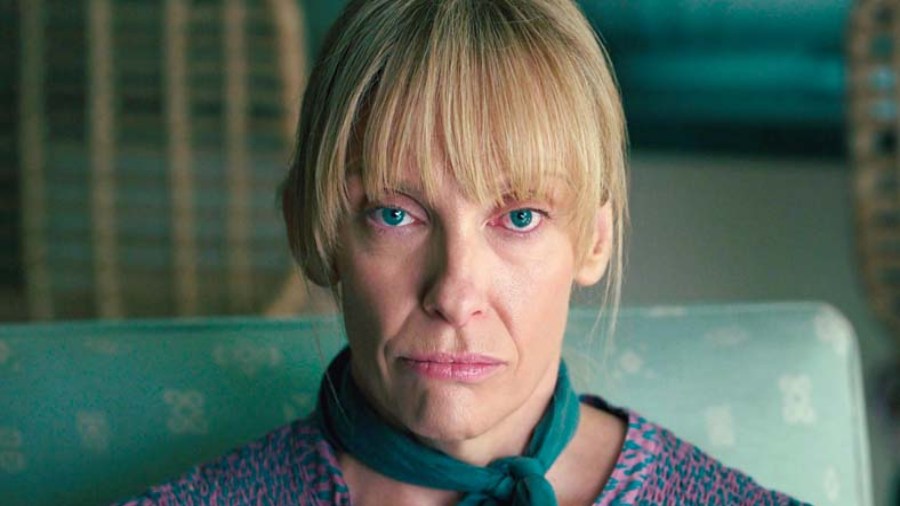
Toni Collette in Pieces of Her
Toni Collette could play a chair in a room, and I would still watch her. The fact that she headlines Pieces of Her made me hit the ‘play’ button stat! Collette plays a small-town good samaritan whose murky past rears its ugly head when a video of her taking on a gunman with cold, calculated precision at a local eatery goes viral. That sets her daughter (played by Bella Heathcote) on a cross-country run, dodging attacks by the dozen, even she deals with discovering a side to her mother that she never knew existed.
Based on the eponymously named 2018 bestseller written by Karin Slaughter, Pieces of Her hits the ground running and keeps building on the intrigue as Andy uncovers her mother’s truth, even as Laura/Jane (Collette) pulls out all the stops to keep herself and her daughter safe.
‘What you see is not what you get’ is a sub-genre that’s quickly gaining favour and fans, and Pieces of Her remains engaging as long as it pieces together the past of a seemingly mundane woman whose unfortunate brush with a string of bad decisions several decades ago threatens to upend the life of her and her daughter.
Pieces of Her has a lot going for it — besides Collette, Heathcote is well cast and carries a large part of the show on her shoulders — but the high-stakes opening doesn’t get an engaging enough follow-up. Save for a few genuine plot twists here and there, the series ends up being a bloated watch, demanding an eight-episode commitment from the viewer, which it doesn’t really deserve. The anticlimactic ending doesn’t really help matters. But we recommend that you give Pieces of Her a go, even if it’s for a few episodes, just to watch a divine Collette at the top of her game.
Available on: Netflix
Breakfast with Champions
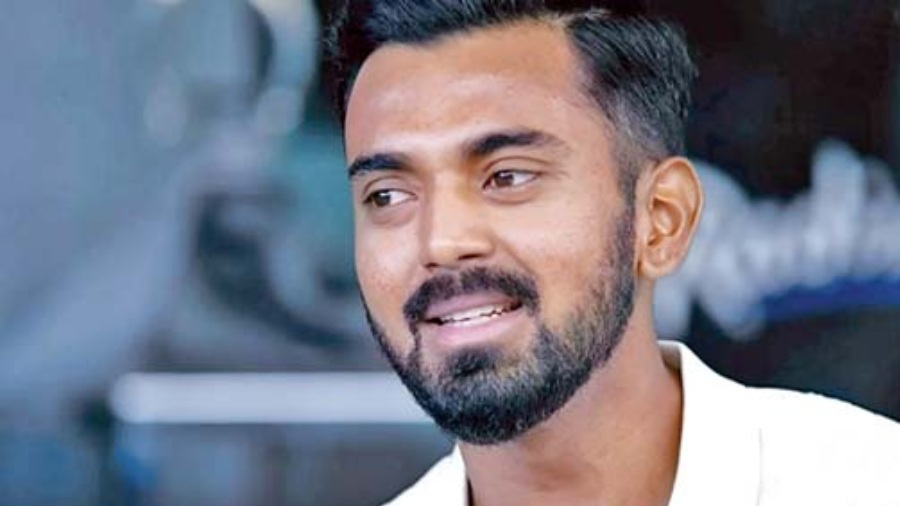
K.L. Rahul in Breakfast with Champions
Gaurav Kapur’s tete-a-tete with cricketers, on most matters non-cricket, on his show Breakfast with Champions has built a steady fanbase over the years. Kicking off Season 7 this week was a 22-minute episode with K.L. Rahul, a Gen Y cricketer who I am quite fond of, someone who seems to be as much a solid guy off the field as he is on the 22 yards.
The episode isn’t laugh-out-loud hilarious (like the way Ashish Nehra or Virat Kohli left us in splits) but it does well in offering a peek into the mind of the young cricketer. What works is the relatability factor, with Rahul revealing how his middle-class parents, despite his achievements in the game, were the happiest when he landed a job with RBI and how during the first lockdown, his mother asked him to get back to his books and get a degree! He also talks about how his mom took him for a ride for many years of his life telling him that he was named after Shah Rukh Khan’s popular character Rahul, when he really wasn’t.
But this is no Koffee with Karan — an infamous appearance on which, pal Hardik Pandya for company, — almost cost Rahul his career. So there is no mention of ladylove Athiya Shetty (“I am in a happy place,” is all he says), but there is quite a bit of talk around potential dad-in-law Suniel Shetty and his fitness at 60. Tune in.
Available on: YouTube
Bad Vegan

Sarma Melngailis in Bad Vegan
I am drawn to true crime documentaries, especially those focusing on a cult or the occult. But I wasn’t quite prepared for the kind of bizarre watch that Bad Vegan is. The four-part documentary series may seem like just another tale of fraud and infamy (coming close on the heels of Inventing Anna and The Tinder Swindler), until you get to that bit of the synopsis that says, “After marrying a mysterious man who claimed he could make her dog immortal....” What?! Yes, that was my first reaction and the trigger to start watching Bad Vegan.
The series, coming from Chris Smith who gave us the compelling Fyre: The Greatest Party That Never Happened, chronicles the confounding downfall of New York’s vegan queen, Sarma Melngailis. The vegan chef and owner of Pure Food and Wine, a popular Manhattan spot frequented by the famous — the show tells us how Owen Wilson would walk in through the kitchen and walk out with a vegan smoothie on a daily basis and how Alec Baldwin had his eye on Sarma — was the enviable face of a rich lifestyle and one of the key proponents of the “raw food” movement.
That was till she met a con man named Shane Fox/ Anthony Strangis, who convinced Sarma that he was “a being from another world” and could help in not only “transferring” her to a happier realm, but also make her beloved dog Leon immortal. What followed was years of gaslighting, emotional manipulation, the siphoning off of millions of dollars and ultimately the two landing up in jail on charges of grand larceny, tax fraud, defrauding investors and violations of of labour law.
Bad Vegan starts off as a promising watch, but gets more bizarre by the minute. Sarma, now having served jail time, is the main narrator here, with a host of others involved in the story operating as talking heads. While the story is fascinating and functions as a cautionary tale, one can’t help but think that this is a damage control/ clean-up act for Sarma who has no solid reasons to offer when repeatedly asked why she fell for what was a clear con job. Bad Vegan is a frustrating watch — I found myself wanting to give up sometimes — but just on the basis of its outlandish premise (“Is this for real?!” you will ask yourself a million times), maybe you can give it a dekko.
Available on: Netflix
The Night House
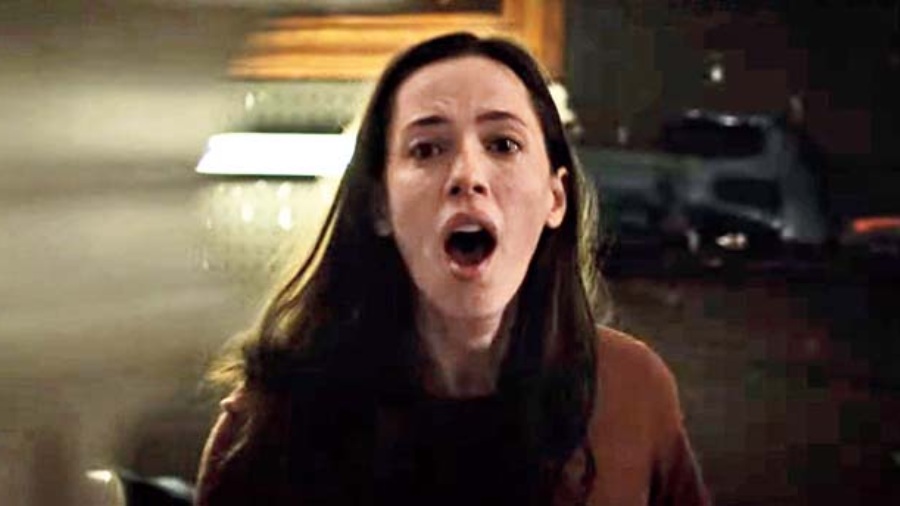
Rebecca Hall in The Night House
I am a sucker for a good horror story and this is a 2021 release which I ended up watching just two days ago. The Night House is a tightly written (for the most part) and cleverly directed film that overturns the traditional tropes of the genre. Rich in atmospherics, the film expertly and immersively builds on the tension, and never really lets go.
Touching upon themes of depression and suicide, The Night House is eerily unnerving, buoyed by a strong central performance from Rebecca Hall. Hall, who we should definitely see much more of, stars as a high-school teacher named Beth, struggling to cope with the unexplained suicide of her loving husband, who rowed their family-owned boat to the middle of the lake a few days ago and shot himself in the mouth. Even as she tries to piece together what made him take this drastic step, Beth has eerie experiences in the house she shared with her husband Owen, and is convinced that he’s ‘back’.
The Night House uses the emotions of loss and grief and gives it a thriller spin, creating a tale that will have one question what it is you see and wondering what you don’t see, much like Beth. The setting in itself lends to the scares — I can never understand why people in horror films live so far away from civilisation and in houses with French windows which have no curtains — and The Night House successfully builds up to a bone-chilling psychological thriller that will make your skin crawl. That is until the third act where it inexplicably crumbles under its own weight. But for a large part of its runtime, this is genuinely scary fare.
Available on: Disney+Hotstar